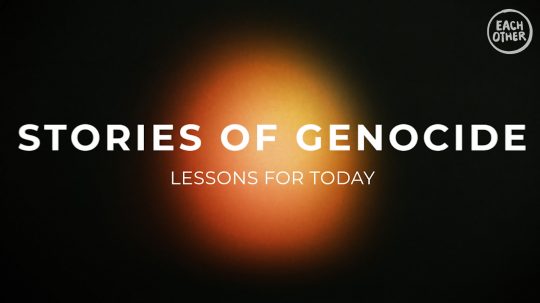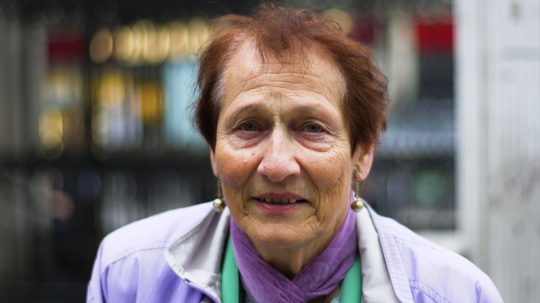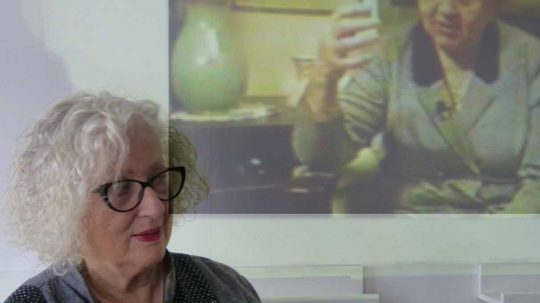
Ruth: I think there were definitely warning signs there... but I don't think they were so much ignored, as denied.
Eric: Something serious was building up but never thought that it was going to be as horrible it turned out to be.
Kemal: History can teach us so much, but we keep ignoring history lessons at our own peril.
TITLE: Would you have seen the signs?
Ruth: ... I was born... in 1935, when the Nazis were already 4 years in power…
"I was very sheltered... I've a photograph when I was 2,a normal happy scruffy two-year-old blissfully unaware of what was going on outside."
Kemal: I was born and raised in rural Bosnia. My family had lots of animals, we grew some crops...my childhood was pretty much idyllic.
Eric: I grew up in a very stable family environment.I went to school… I played football…
Kemal: When I was a teenager….some media started using propaganda to vilify one particular group in former Yugoslavia, the Albanians.
...after 1984, this propaganda became more vicious.
Eric: The government of that time put in place those rules – that Hutus had more right to jobs and education and so on and so forth and Tutus had less
Ruth: … the Jewish community was used to persecution... and mostly thought that if they didn't make trouble, it would all blow over…
...it wasn't until Kristallnacht that they really woke up to realising it wasn't going to blow over.
Eric: I went to this primary school. The teacher asked to raise our hands “Tutsis raise your hands, Hutus raise your hands”... “ Tutsis on this side, Hutus on that side”.
Ruth: ...almost immediately after the Nazis came to power……my father was sacked from his position as a judge...Aryan Germans were not allowed to employ Jews…
Eric: A number of friends and family members got arrested purely because they were Tutsis…
Ruth: I came to England on the Kindertransport with my brother in 1939… I can remember, being very shocked at the huge mountain of luggage piled up on the deck, and I remember being frightened that the boat would sink... too many people and too much luggage.
Kemal: I ended up in the Omarska camp….. the most notorious concentration camp in Bosnia. Physically I was there for two and half months, but every day was like a whole eternity…...you just want to survive, you want to live, you want to see your family again.
Eric: ...during the genocide I lost so many family members ...including a young brother of mine who was just 7 years old.
Ruth: ...most of the population were terrified… because the Nazis dominated and terrorised very early on, immediately they took power they started killing people.
Kemal: After two weeks, they began the process of interrogations, I say interrogations, but it was really the process of torture
Ruth: They completely perverted the legal profession, the teaching profession, the medical profession...
Eric: It became normal to call a Tutsi a cockroach and then we somehow accepted it. People went out and killed their fellow human beings without actually realising they were killing real human beings. They believed they were cockroaches
Ruth: ...the lessons of the Holocaust have not been learnt… the fundamental lesson that all human beings are equal as human beings, we're a long way from accepting that.
Kemal: I have seen and survived something no human being should be aware of. I feel that humanity can benefit from such stories, in hope that they don’t have to go through the same experiences
Ruth: "I'm only one person. I can't do anything about it anyway.” I think that was probably the attitude of most people and still is today. And I challenge it. The only way forward to avoid self-destruction is through education and thinking, critical thinking. We need a massive drive to raise awareness of the existence of human rights.
Kemal: We must learn that we cannot expect our politicians to protect our human rights. We constantly have to fight for our human rights, because so many people before us have fought for them, and died for them, we are the only people who can protect our human rights.























